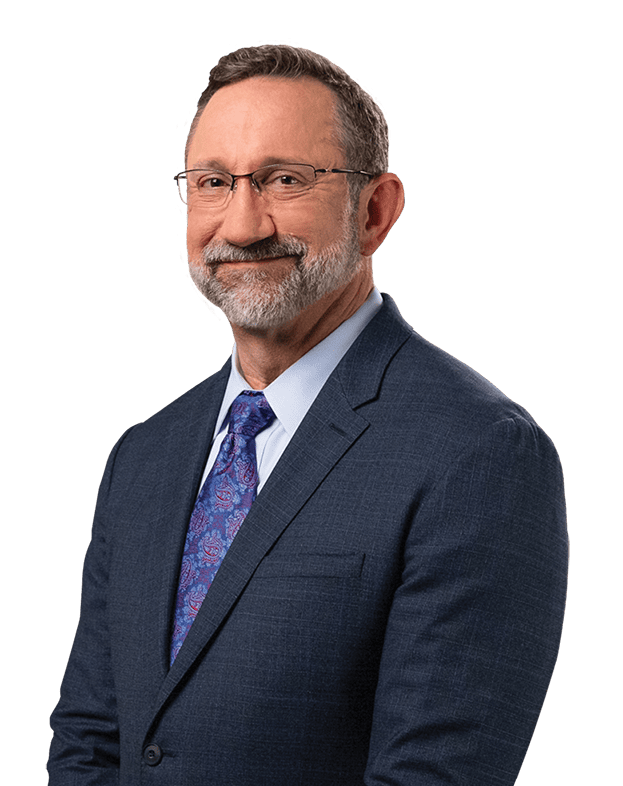06/06/2024
Chris Stevens: Championing Veterans’ Rights as a Dedicated VA Attorney
How did you become a VA Attorney?
Veterans Disability law wasn’t really on my radar when I was in law school. I’m not sure I even realized it was an area of law that you could build a practice in exclusively until I started learning about it firsthand on the job at the Deuterman Law Group.
When I was hired in 2017, I went through a rotation of all the firm’s practice areas — workers’ compensation, Discapacidad de Seguro Social, personal injury, and ending with Discapacidad de Veteranos. Naturally, I learned something at every stop of the rotation and enjoyed working on behalf of those other clients.
But ultimately, I found my passion and legal calling with the VA Disability team. To me, it was the most interesting and the most challenging area I rotated through. There’s a lot of problem-solving and strategy involved in putting forth the best claim or appeal for a client to maximize their benefits and reduce the amount of time they have to wait to receive them.
More importantly, to be able to help injured and disabled veterans, who have given so much in service to our country, is really gratifying. It’s also very personal to me. My brother-in-law, who I’d known since I was 13, was an Army veteran who served tours in both Iraq and Afghanistan in the early 2000s. I remember what it was like when he deployed. I remember what it was like when he returned. Like many veterans, he had to deal with the lasting effects of his service for many years after. He unfortunately passed away in 2019. His loss still stings, but I have the opportunity to utilize my skills to help many other veterans in need, and I intend to continue doing just that.
What types of clients are you representing?
We represent a wide variety of clients, including Vietnam-era veterans, Gulf War vets, those who served in Iraq and Afghanistan during Operation Iraqi Freedom and Operation Enduring Freedom and in more recent conflicts.
Veterans are eligible for disability compensation for injuries and illnesses, including mental health conditions, that developed as part of their active-duty military service.
We’ve worked with clients with a range of different conditions, including PTSD, unreported military sexual trauma, hearing loss and tinnitus, traumatic brain injury, Agent Orange-related conditions, Gulf War syndrome, cancer, respiratory issues, mental health illnesses, and pretty much any physical condition you can think of.
This is definitely a growing practice area, especially as veterans age and the VA evolves its policies around mental health issues. Legislation such as The Health Care for Burn Pit Veterans Act has expanded who is eligible for VA health care and benefits.
What is the most rewarding part of your job?
Being able to help veterans is the most rewarding part of the job. You’re helping a population we all want to help.
This work really does help change people’s lives. When a veteran is granted VA Disability benefits, they gain access to free healthcare for their service-connected conditions. The financial benefits provide a much-needed income and safety net. We’ve had clients who have been able to become housed, avoid foreclosure, and achieve financial goals after receiving VA Disability benefits.
When a veteran receives a positive decision from the VA, it can open up a whole world of additional benefits to which they may be entitled, including prescriptions, housing benefits, loan benefits and tax breaks. It feels good to play a part in that.
What is the work like?
VA Disability law is such a unique practice area. The VA’s internal rules are ever evolving, and the statutes outlining Veterans Disability benefits and healthcare change often based on Congressional action. When you practice in this area, you’re constantly learning and the work is not repetitive or rote. Every case is unique, and there’s a lot of strategy and opportunity to use your legal skills.
Could you describe a typical day at your job?
As a VA Disability attorney, you’ll do a mix of legal research, preparing for hearings and appeals, collecting evidence, meeting and talking with clients, and presenting their appeals to the VA Decision Review Officers or to a Veterans Law Judge at the Board of Veterans’ Appeals. It’s not just all paperwork or all litigation, and you do get a lot of opportunities to interact with your clients.
Because many VA Disability claims are denied initially, a lot of my work is focused on shepherding those cases through the VA appeals process, which can be really confusing and frustrating for a lay person to navigate.
I probably have two or three higher-level review appeals for clients every day. These often involve identifying errors or differences of opinions that could change the VA’s original decision in the claim. Those are generally shorter hearings, conducted by phone, usually without the client on the line.
I usually meet with at least one new client every day, either in person or by telephone, to learn more about them, their military service, their injuries and their specific claim. I also spend time daily reviewing potential clients’ claims to see if we’re able to help them.
When a veteran’s claim is denied, we have to determine the best route for their appeal. Options include submitting a supplemental claim with additional evidence, requesting a higher-level review, or appealing to the Board of Veterans’ Appeals.
The wait time for a Board appeal hearing can be as long as three years because the VA is understaffed and has a massive backlog of cases. Those appeal hearings are conducted by videoconference with our clients testifying and answering questions from their attorney and the Veterans Law Judge. Sometimes, we will also have witnesses to testify on our clients’ behalf.
I probably have two to five of these Board hearings every month. There’s a lot of preparation that goes into these hearings and the other types of appeals. Our team is touching base with clients a lot, gathering evidence and filing required paperwork. We also are keeping up with changes in statutes and VA rules that could affect our clients’ disability claims.
What is the on-the-job training like for a VA Disability attorney?
When a new associate joins our team, they’ll work closely with our other VA Disability attorneys and me to get up to speed. It’s a true mentorship process with lots of opportunities for hands-on learning. We usually have them sit in on client conferences and observe hearings and appeals. They will gain practice by helping prep cases and doing research into legal issues we may encounter.
We also want new attorneys to have a good understanding of the basics of how the VA benefits system works. So, they’ll be given the opportunity to do a deep dive into that and any important rules or cases. They’ll spend time reviewing relevant statutes and regulations and reading important decisions from the Board of Veterans Appeals or the U.S. Court of Appeals for Veterans Claims.
Is there any special accreditation or certification you need?
If you plan to practice VA Disability law, you’ll need to be accredited by the VA to represent veterans and their families. That involves some pretty rigorous training by the VA, as well as a federal background check, fingerprinting and some other federal paperwork. The accreditation process can take months to complete. (While you’re waiting for that, you can work on cases under the supervision of an accredited attorney.)
Attorneys have to complete a CLE every year to maintain their VA accreditation.




